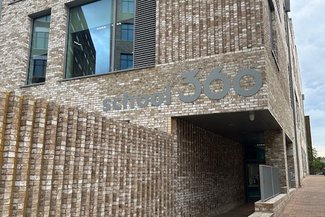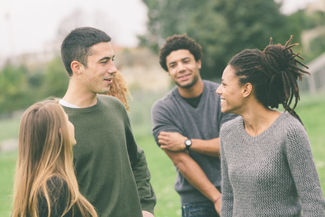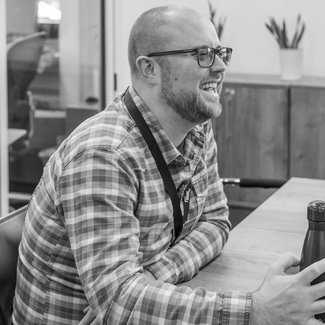The Deeper Learning UK Conference 2024 – Strengthening Our Community
On June 12-13, some of education’s brightest minds gathered to share ideas, hopes and plans for the future of learning in the UK. Facilitated by Edge, this year’s Deeper Learning UK (DLUK) Conference in London saw school leaders, academics, and policymakers from across the UK come together to deepen professional bonds, refine and codify innovative practice, and spread systemic change in education.
Deeper Learning in Practice at School 360
Day 1 kicked off at School 360, an experimental primary school in East London that is part of the Big Education Multi-Academy Trust – one of the founding members of DLUK. Seasoned network member and Co-Headteacher at School 360, Sarah Seleznyov, offered to host this year’s conference to showcase the school’s innovative approaches to teaching and learning. School 360 is uniquely experimental, operating a play-based curriculum up to age seven.

Attendees met and spoke to the pupils about their experiences and saw firsthand how classroom set-up was designed to enable play-based provision and effective teaching and progression. Among other highlights, Sarah noted the school’s use of new technologies, including, a learning platform that tracks children’s work, allows for task setting, and provides a positive space for feedback. She also highlighted the school’s approach to environmental education, showcasing the work the school has been doing to engage children with nature by rewilding the school grounds.
A strength of DLUK is its ability to unite like-minded educators who might otherwise feel isolated in their pursuit of change. “It’s great to share practice with allies who think the same way as you,” Sarah said. “We sometimes have visitors who don’t fully grasp our approach. But DLUK network members are very open-minded and understand what we’re trying to achieve.”
For Dr Marcelo Staricoff, a Lecturer in Education at the University of Sussex, the conference was his first DLUK event. He praised both its precision organisation and collaborative atmosphere. “From start to finish, it was incredibly professionally organised. We all felt extremely well-prepared, supported, and welcomed from the start. You didn’t feel like ‘another delegate’. You felt nurtured.”
Sharing Deeper Learning Best Practice
The event included numerous discussion sessions, most of which took place on Day 2. Edge’s Executive Director, Olly Newton, set the stage with an overview of the latest developments in the DLUK community, followed by an introduction session for new network members. The further sessions were then divided under the conference’s key themes: ‘Connect’, ‘Co-create’ and ‘Conspire’.
‘Connect’ saw a session from educators Peter Worth and Patricia Flanagan from Catalyst Schools, who talked members through their approach to fostering a deeper learning culture in Northern Ireland. Renowned educationalist and Co-Founder of Schools of Tomorrow, Malcolm Groves, then shared his unique reflections on five decades of change in the sector.

During ‘Co-create’, we heard from Trine Vibe Matzen and Ethan Jordans, who shared their fascinating journey towards embedding project-based learning across a group of schools in Denmark. Meanwhile, Nicola Chadwick from the London-based education-business partnership, The Switch, led a session on developing rich employer engagement.
Finally, for ‘Conspire’, Bill Lucas gave an excellent talk on digital learner portfolios, a topic that resonated with many attendees, while Olly Newton concluded with an outline of DLUK’s plans for influencing policymaking in the year ahead.
Although insightful in their own right, the interactivity of these sessions was designed specifically to spark connection. For instance, as Sarah noted, Nicola Chadwick's work was directly relevant to School 360, leading to Sarah connecting Nicola with her colleagues. Meanwhile, an interactive workshop delivered on day 1 by Shaun McInerney from Worcester University has opened doors for Dr Staricoff to get involved with a groundbreaking school leadership development programme. These are just two instances of many from across the event.
Conversations that count and forging new partnerships
The conference’s entire approach – from seating plans at dinner to breakfast sessions and ad-hoc networking – put collaboration at its heart. This was very much by design. DLUK aims to foster a community of practice where members learn from one another, rather than simply attending events and listening to presentations. Members were regularly encouraged to work together with others, both to seed new connections and gain fresh perspectives. In short, the conference was a showcase of innovative practice, yes, but also plentiful with informal opportunities to connect and build new relationships.
“When the network was established I think people were a little wary at first,” Sarah explained, as a long-term member. “There is so much competition in the education space that this sort of event seemed completely out of the ordinary. A few years in, though, and it has become deeply collaborative. All the members are receptive to partnership, and everyone is generous and open with their time and ideas.”

Indeed, despite diverse roles, goals and regional contexts, all attendees are ultimately pursuing the same objective – a balance between head, heart, and hand. The head represents academic achievement, which is currently overemphasized in mainstream education. The heart represents relationships and well-being, and the hand represents creativity and skills building. All DLUK members essentially agree on balancing these basic principles as to deeper learning, whatever context they are working in.
The conference concluded with a clear message noting the network’s long-term plans. I told attendees: Today is the first day of our next five years together,” promising those present that over the next half-decade, everyone in the room would achieve amazing things. Dr Staricoff said that this feeling of joining a movement was almost the best of the event. As for Sarah Seleznyov: “There was a feeling in the room that the Deeper Learning Network was enabling optimism,” she said. “And that’s something we really need right now.”
It’s never too late to get involved. You can find out about Deeper Learning here and get in touch if you’d like to find out more about how to get engaged.

